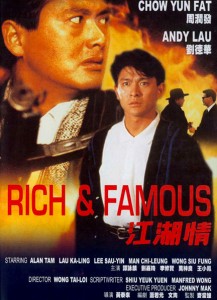
“Rich and Famous” Chinese Theatrical Poster
Director: Taylor Wong Tai Loy
Cast: Chow Yun Fat, Andy Lau Tak Wah, Alex Man Chi Leung, O Chun Hung, Alan Tam Wing Lun, Lam Chung, Shing Fui On, Carina Lau Kar Ling, Wong Chi Keung, Pauline Wong Siu Fung, Fan Mei Sheng, Danny Lee Sau Yin
Running Time: 104 min.
By Joseph Kuby
Hollywood inspired crime thriller! Rich and Famous, according to author Stephen Teo (of Hong Kong Cinema: The Extra Dimensions), was one of many heroic bloodshed/Hong Kong crime thrillers inspired by Sergio Leone’s Once Upon A Time In America i.e. an epic crime saga, dealing with loyalty, honour and betrayal and maybe featuring scenes of the gangsters as children before they hit the big time. Other examples of this include Flaming Brothers and Bullet In The Head.
Rich and Famous is essentially a tale of violence, shattered innocence, brotherhood and cowardice.
The film borrows liberally from Francis Ford Coppola’s Godfather and Sergio Leone’s Once Upon A Time In America (whose film inspired many Hong Kong crime thrillers such as Brotherhood and City On Fire). It’s ironic that Sergio was originally going to be the director for Godfather. One may draw comparisons between Taylor Wong’s film and its U.S. equivalents such as this being a period crime thriller involving betrayal (among relatives) which takes place over a series of decades (complete with a wedding assassination sequence just like in Godfather), but it seems to be wanting to ape the artistic success of the swan song that helped cement Sergio’s reputation as a director of fantastic product dripping with excellence.
With the wedding sequence mentioned before, the sequence handled here is fairly gripping and engaging as we feel involved with the characters despite not getting to know that much about them as the level of exhaustive yet absorbing detail seen in U.S. epics like OUATIA, Deer Hunter or Heaven’s Gate (the former two starring Robert De Niro and the latter two directed by Michael Cimino).
The film suffers from characters surviving (and even fighting) after getting shot in fatal areas making this appear slightly hokey in nature and giving it more of a surreal comic-book feeling, which sort of makes the audience step back from the viewing experience as it’s hard to take things seriously enough to be on the edge of our seats if things aren’t realistic in a film which demands this kind of expectation. It’s these sorts of things which threatens to derail Hong Kong cinema’s proven track record of making gritty street-realistic cinema.
Having characters cheat their deaths in more ways than the Final Destination movies put together can be somewhat off-putting. It’s one thing prolonging characters’ questionable and bleak fates to generate suspense but it’s like the filmmakers are afraid of losing characters which may give their film appeal. Sometimes in order to create memorable cinema, you have to be daring and make sacrifices, regardless if the consequences are bleak. The success to being a filmmaker is to craft characters that even you (the filmmaker) cares for, make the audience believe and care but at the same time detach yourself (as a filmmaker) from the characters so that you don’t cop-out on what could make for an artistically worthwhile twist in the story (even if it’s tragic).
The problem with the script (or at least the way the film is edited assuming a lot of footage was left on the floor – it was made back to back with the sequel Tragic Hero) is that there’s not much explored in terms of the characters’ motivations, the problems they’re dealing with and the certain character traits they possess i.e. the ones they start off with and eventually develop e.g. feelings of greed, jealousy and lust.
I suppose the aforementioned U.S. epics (plus others) have spoilt us with extremely elaborate in-depth stories that leave no stone unturned as to what’s what and who’s who in the novel stories (although part of the magic of these movies was that there was a good deal of subtlety so as to fill in the missing pieces yourself).
Rich and Famous was produced by Johnny Mak (the director for the groundbreaking Long Arm Of The Law which is often hailed as the film that started the Heroic Bloodshed genre {alongside Woo’s A Better Tomorrow} despite an impressive gun battle seen near the end of Wong Jing’s Challenge Of The Gamesters which predates the ensuing classics of the genre). Johnny, like Tsui Hark, has been well known for interfering with films where he’s credited as producer so one can only ponder what influence he brought onto the film directorially (interestingly a pivotal scene in Long Of The Arm involving a certain helicopter seemed to have inspired Francis for Godfather 3… it’s amazing the way things come full circle in the world of film).
This is hardly one of Fat’s best films (much less one of his best performances) but it contains a great performance from him which makes this worth watching. That, in itself, is a sign of how brilliant of an actor Chow Yun Fat is. If an actor or actress gives a great performance, it’s usually seen as been one of their best but with a thespian such as Chow, he’s done so much brilliant work that it takes (and means) a lot to distinguish between films where he gives great performances and ones that can be said to be among his best. Same thing could be said about Sammo Hung as a fight choreographer or Stanley Kubrick as a director.
The issue of how a person can be critically evaluated as an actor is a mixed bag, you can get a top-notch performance in a bad film and a moderate one in a great film. The question which can resolve the issue is considering how much an actor’s performance is influenced by the combination of script and direction.
It was nice seeing some familiar character actors and big names like Andy Lau and Danny Lee. However, one major gripe as alluded to before, is that the story could have been more developed for the segments involving the protagonists’ youths (their motivations, the causes for those motivations and how & where it takes them) as well as their lives before entering the lifestyle of the Triads and seeing how they operate within their day-to-day lives and how this may give them a strong validity to enter such a last-resort lifestyle. It just would have given certain events in this movie a hard-hitting emotional punch.
The main criticism that I could give to Rich and Famous is one that applies equally as well with the novel-cum-film Cold Mountain: both films are very good for what they are but should have been left for television producers to work on. The thing with films such as these is that unless you know how to get so much done within a certain running time (and depending on the complexity of the narrative) or if you’re doing something that’s commercially appealing enough to make into a series of films, sometimes the most labyrinthine of stories can only be given justice if allowed to thrive on television since the format allows us to spend more time with the characters.
Back to Rich and Famous particularly, we also could (and should) have seen more of their experiences within the Triad lifestyle and how it’s changed them (as mentioned before, the original Hong Kong trailer shows scenes not seen in this film so this could have been a film of epic length and quality like its U.S. equivalents as well as John Woo’s Bullet In The Head whose original edit clocked in to a running time of three+ hours).
Alex Man delivers a very good performance as an initially amiable friend who turns downright rotten – he’s realistically sinister. In fact, it’s his performance (that cackles with malicious and maniacal menace) that really saves this film from being a dire attempt at grandiose spectacle (honestly, there are some moments in this film which are so pretentious and self-indulgent that it’s like the director is suffering from some form of narcissistic disorder stemming from delusions of grandeur).
Andy Lau deserves some kudos for his performance as a loyal companion who’s torn between his bonds with Alex and Chow (I guess it says something about the writers and director that the tug-of-war tension is suitably comparable to the ones seen in Platoon and A Bronx Tale).
There’s not much action as there is in the sequel called Tragic Hero (whose finale seems to have influenced Woo greatly for his magnum opus showdown featured in his own sequel to A Better Tomorrow). Though what’s in here is decent enough entertainment if somewhat unrealistic (you would not believe how people fight, let alone survive, after receiving a fatal amount of wounds). This level of surrealism makes Woo’s work appear to be a semi-realistic form of documentary-style realism.
Chow offers a variation on what he was well known for in A Better Tomorrow. In that film, he held pistols in both hands directly in front of him (i.e. in a linear manner) as he was firing away (a familiar icon which has been ripped off left, right and center EVERYWHERE). In this film, he holds two machine guns in both hands but with each hand crossed over the other so that he can take on adversaries from less-than-linear directions.
Whilst this film has better production design (i.e. props and sets) than A Better Tomorrow (though the soundtrack is slightly cheap save for a few moments), it’s certainly no classic and it just about manages to be accepted and classified as a good film if not a very good one much less great or brilliant.
Joseph Kuby’s Rating: 7/10


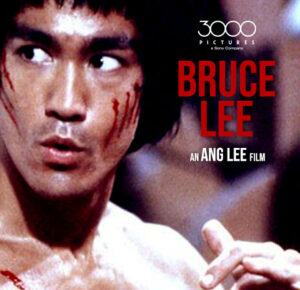
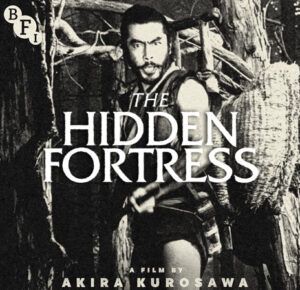
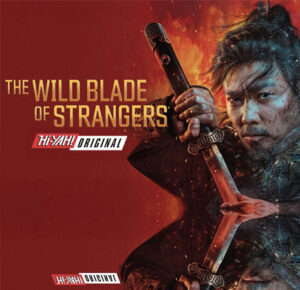
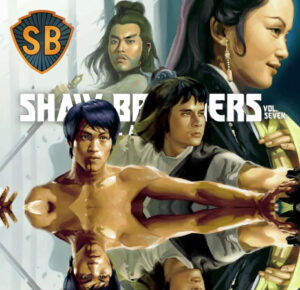







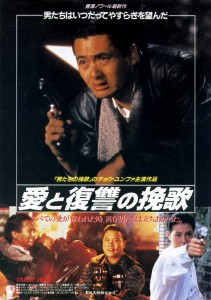








2 Comments